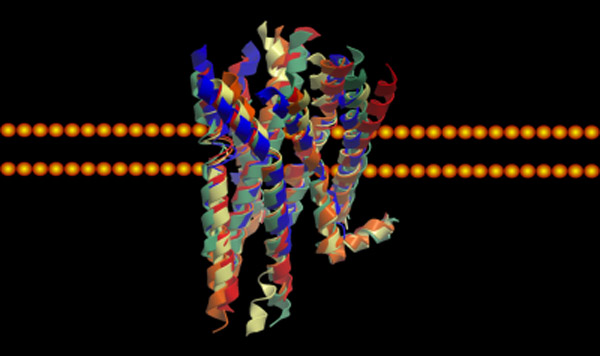首页 > 留学资讯 > 蒙纳士大学兼职教授Professor Brian Kobilka获得2012年诺贝尔化学奖

An overlay of multiple GPCR structures sitting on a cell membrane
Monash University Adjunct Professor Brian Kobilka, who helped reveal how the body responds to the smells, sights, flavours and threats of the outside world, has won this year's Nobel Prize in Chemistry.
Based at Stanford University and holding an Adjunct position at the Faculty of Pharmacy and Pharmaceutical Sciences, Professor Kobilka shared science's most prestigious award with Duke University's Robert Lefkowitz for major contributions to understanding how molecular sensors, known as G protein-coupled receptors (GPCRs), function.
These sensor proteins, found on the surface of all cells, act as gatekeepers between cells and the environment they live in. GPCRs are the largest and most important family of receptor proteins in the human body. They play a role in virtually every biological process and most diseases, including cardiovascular disease, obesity and diabetes, neuropsychiatric disorders, inflammation and cancers.
Almost half the current medications available use GPCRs to achieve their therapeutic effect, and the sensors provide fertile ground for further novel drug discovery.
Professor Kobilka was recently appointed Adjunct Professor within Drug Discovery Biology (DDB), and is part of the distinguished Faculty for the HDR program in Drug Discovery Biology at the Monash Institute of Pharmaceutical Sciences (MIPS).
DDB program leaders, Professor Arthur Christopoulos and Professor Patrick Sexton, from the MIPS are close collaborators with Professor Kobilka.
“The contributions of Bob Lefkowitz and Brian Kobilka cannot be overstated. So much of what we know about the processes governing GPCR function and regulation can be traced to their seminal contributions,” Professor Christopoulos said.
“GPCRs are the targets for almost half of all currently used therapeutic drugs. Working closely with Professor Kobilka, the principal direction of our laboratory is towards understanding modes of regulation of GPCRs in an effort to identify novel targets for drug discovery,” Professor Sexton said.
The Monash community congratulates Brian Kobilka and Robert Lefkowitz on the recognition.